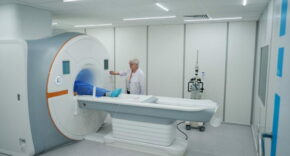
New technology from British healthtech pioneer Sanius Health is a major advance in rare diseases, blood cancers care and long term conditions, giving patients and clinicians crucial lead time to act.
30th September, 2025, LONDON: Millions of patients worldwide living with sickle cell disease (SCD) could soon have the power to anticipate painful vaso-occlusive crises (VOCs) before they occur, thanks to an artificial intelligence platform developed by Sanius Health, a London-based digital health company.
Sanius Health uses predictive analytics to forecast crises with up to 92% sensitivity, giving patients actionable lead time and enabling clinicians to intervene earlier.
This breakthrough, validated in real-world studies, represents a major advance in rare haematology care, and the ability to forecast crises before they happen could redefine how rare blood diseases are managed worldwide.
Sickle cell disease is one of the world’s most common genetic blood disorders, affecting nearly eight million people globally, according to the World Health Organisation.
VOCs are its most frequent and debilitating complication, often leading to emergency hospital admissions, long stays, and long-term organ damage.
“Imagine knowing a crisis is coming before it strikes,” explains Orlando Agrippa, Founder and CEO of Sanius Health. “That’s the reality we are building. This is about moving from reactive care to proactive care. Instead of waiting for pain to send someone to the emergency room, we can anticipate problems and step in early. For families and healthcare systems alike, the benefits are enormous.
“By combining real time biometric data from wearable devices, patient-reported outcomes (PROs), environmental metrics, and clinical records, our AI-powered system assigns daily risk scores that forecast the likelihood of an impending crisis.
“When thresholds are reached, patients and care teams are alerted. Our AI gives patients back a sense of control over their condition, and it gives clinicians vital time to act before a crisis escalates.”
Sanius Health’s technology is designed to integrate seamlessly into patient lives and clinical workflows. Data captured from smartwatches (such as activity, sleep, and heart rate), alongside mood, fatigue, and hydration reports, feeds into machine-learning models that identify subtle changes in physiology and lifestyle.
When risks rise, the system provides clear, actionable insights: a patient might choose to rest, hydrate, or contact their healthcare provider; clinicians can adjust monitoring or medication to prevent hospitalisation.
“Patients told us they could feel more confident and less anxious knowing they had a system watching out for them,” Agrippa explained. “That feedback is as important as the data itself because at the end of the day, this is about people, not just predictions.
“These patients trust us with their most personal data, and that trust is sacred. Our role is not just to deliver predictions but to ensure those predictions are used ethically, transparently, and with the patient’s full understanding and agreement.
“We’ve built the world’s largest living patient registry in sickle cell disease, and now we’re using that foundation to scale globally,” Agrippa said. “From London to Lagos, from Mumbai to the Middle East, our vision is to ensure every patient with a rare blood disorder can benefit from predictive, personalised care.
We believe this is the future of rare disease care. Every patient deserves to live without fear of the unknown. With AI, we can replace uncertainty with foresight, and pain with preparedness.”
Sanius Health has presented results from its predictive models at leading global scientific haematology conferences, including the American Society of Haematology (ASH) and others:
- In one study involving 399 patients and 1.2 million data points, the AI achieved 92% sensitivity in predicting crises.
- Wearable and self-reported data revealed measurable declines in activity, sleep quality, and health scores up to a week before hospitalisation.
- Patients using the system reported fewer emergency admissions, shorter hospital stays, and improvements in quality of life.











